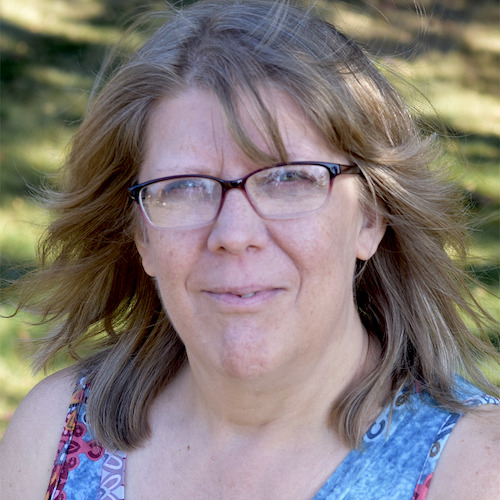
Years before the pandemic, the specialized healthcare needs of people living with dementia and the challenges of caregivers facing their disease progression already were on the radar at St. John’s.
With yearly population analysis indicating that more than 85% of St. John’s Home residents had some type of dementia diagnosis beginning in 2015, we knew the growing impact of dementia on our care operations was significant.
We recognized that not only was developing expertise in dementia the right thing to do; it also was a business differentiator that would prepare St. John’s for what would continue to grow as an important strategic focus in the years to come.
To foster an understanding of residents with dementia among staff members, we created an “Elders in Distress” team of clinical experts to work with individual residents and staff teams. Our goals were to reduce hospitalizations and transfers due to behavior, reduce psychotropic drug usage and foster relationships with elders that create meaningful moments of joy, daily.
A peer-to-peer dementia advocate program to train direct care staff to become dementia advocates and support the professional growth of all direct care staff also was established to further support the workforce piece. General education in dementia was added into new employee training for every staff member at St. John’s Home, regardless of function/role.
Family members of residents living with dementia were provided resources through the creation of a dementia library on site, which included books, videos and tangible support items such as puzzles, mechanical pets and simple music players. In addition, a support group for family members and advocates of people living with dementia was launched and was the first initiative to provide support to caregivers who were not direct care recipients. This provided us with the insight needed for future phases of business development.
In addition to building clinical excellence in dementia to strengthen operational capacity to support this population, a consultant was hired to conduct a dementia environment assessment of our two-floor footprint serving residents with dementia diagnoses at St. John’s Home. The assessment focused on eight areas targeted for improvement to better support people with dementia: way-finding, socialization, personalization, safety, self-sufficiency, décor, environment and scale.
The renovations we prioritized based on what came out of this research included new sensory centers for engagement, themed destination rooms with activities aimed at attracting residents with dementia, wall color and lighting fixture changes to increase visibility, common area artwork depicting familiar images, and a focus on comfort. Best practices in dementia design from across the country were benchmarked to create neighborhoods within our home, which enabled people with dementia to thrive.
Initial outcomes from our first phase of changes indicated that we were making forward progress. Notable among our quality measures were a 45% increase in family satisfaction, a three-fold decrease in the rate of high-risk behaviors among residents with dementia, and a 26% increase in elder dementia care confidence among our dedicated group of dementia advocates, who participated in the specialized training.
This early success fueled us to further hone our specialization in serving people with dementia by expanding outreach to family caregivers in the community. St. John’s partnered with the executive MBA program at the Rochester Institute of Technology to assist us with developing a business plan for the creation of an on-site dementia resource center to serve at-home family caregivers of people with dementia. The business case for this initiative came from our experience in serving people with dementia, whose needs, in most instances of the disease, ultimately grew too critical for loved ones to support at home. By offering free information, resources and support to people with dementia and their caregivers before a need exists for higher levels of care, brand confidence and consumer trust is established earlier in the service-buyer journey, well before the caregiver actively enters the purchaser sales funnel.
We complemented our business development plans for a physical dementia resource center with the launch of an online resource center to serve people with dementia and their caregivers. Our web-based center was not bound by geography and has served more than 7,750 visitors from across the country with free information and tools since its launch in 2021. This offering was especially appealing during the pandemic, when many caregivers were homebound with loved ones living with dementia due to the limited community services available at the time.
St. John’s also has further focused its service offerings within skilled care operations to better support people with dementia. Beyond Memory is a person-centered model offered within skilled care to address the needs of people with later stages of dementia. Personalized joy plans, behavioral interventions developed by our in-house dementia specialist, environments created for safety and comfort, and high family involvement are some features of the program.
Recognizing that older adults with mild to moderate dementia require a specialized rehabilitation experience to improve odds of returning home following hospitalization, another recent service extension is a specialized, physical rehab program for people with dementia. Treatment is tailored to address cognitive and physical needs and includes a distress assessment by our dementia specialist and support for family caregivers, if needed. The environment is controlled to promote comfort and safety with minimal agitation-causing changes.
As long-term care facilities look for ways to gain back public trust following the pandemic and move past the devastating disruptions to our industry, developing specialized care offerings within innovative environments will be the key to attracting both future consumers and a talented workforce.
By 2050, the number of US adults over 40 living with dementia is projected to rise from 5.2 million people to 10.5 million. An increasing number of providers of services for seniors will be required to serve people with dementia and their caregivers across all levels of care. Aligning all facets of operations to serve this important target audience is soon likely to be a non-negotiable operational imperative.
Mimi DeVinney is the dementia/quality of life specialist at St. John’s Home, Rochester, NY. St. John’s has three communities collectively delivering a full spectrum of services, from independent living and enhanced assisted living to rehabilitation and skilled nursing care, all centered on customization and choice for residents. In her 20 years at St. John’s, Mimi has heard dozens of questions about caring for people living with dementia. With the launch of St. John’s Online Dementia Resource Center, she provides counsel and support to dementia caregivers across the country through her Ask Mimi blog.
The opinions expressed in each McKnight’s Senior Living guest column are those of the author and are not necessarily those of McKnight’s Senior Living.
Have a column idea? See our submission guidelines here.


